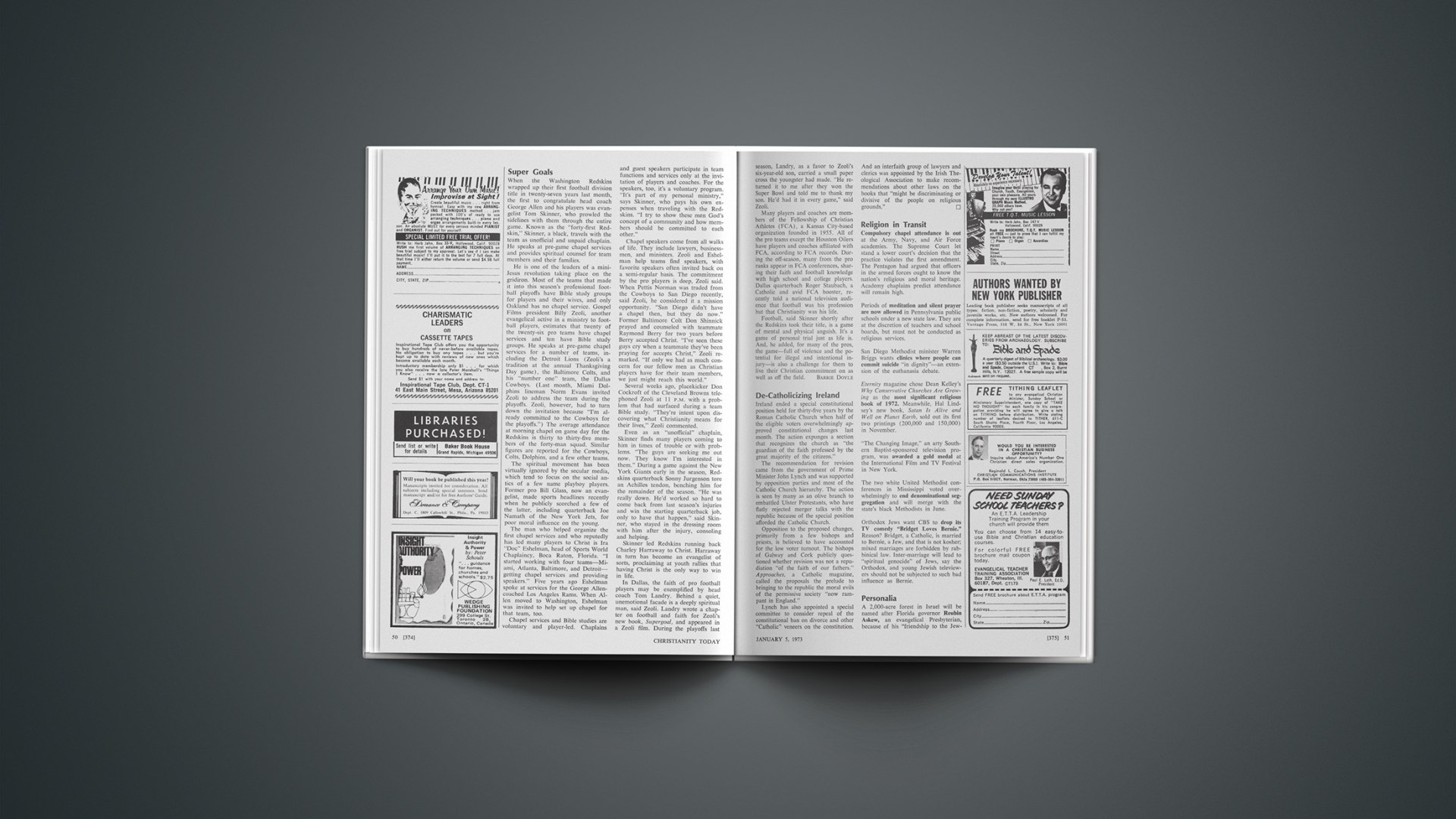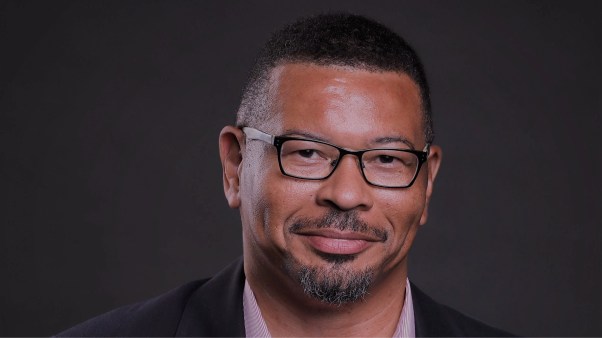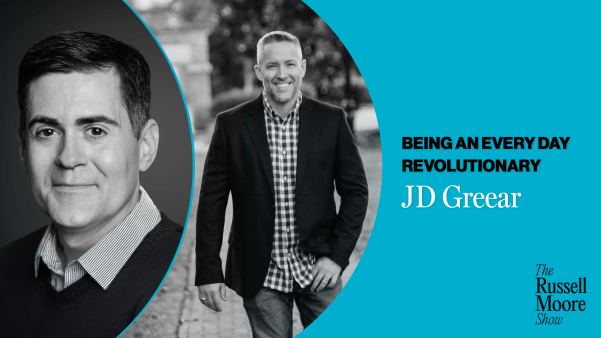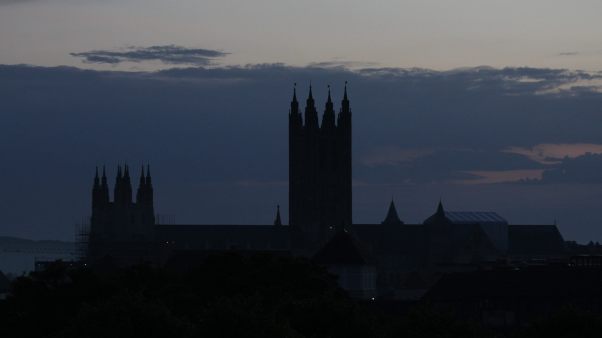In a major effort to bring about ecumenical renewal, churchmen meeting in Dallas in December voted to give a face-lifting to the National Council of Churches. They stamped final approval on a set of constitutional and by-law changes designed to facilitate interchurch cooperation and to make the NCC more attractive to communions which do not now belong.
The meeting was the ninth General Assembly of the NCC, and the adoption of the restructure made it the last, because the new plan abolishes the triennial conclave.
The restructure is not merely so drastic, however, as was envisioned at the chaotic NCC General Assembly in Detroit three years ago. At that assembly, which was repeatedly disrupted by militant radicals, the prevailing sentiment seemed to favor an end to the NCC and the establishment of a more inclusive successor organization. That idea became tempered by the realization that a broader base would jeopardize controversial activities. Insiders want to retain what they regard as the NCC’s “prophetic” dimension. But this is the very factor which more than any other serves as the ecumenical repellent to many evangelicals: the NCC penchant for promoting liberal political causes in utter disregard of conscientiously motivated, contrasting views.
The latest big issues confronted by the NCC are abortion and amnesty. Now under serious study is a policy statement urging repeal of all laws against abortion. Already adopted is a policy statement recommending amnesty for those in legal jeopardy because of the Viet Nam war. The amnesty statement was approved as one of the last actions of the 275-member General Board, which is being replaced by a 347-member Governing Board. The new board is expected to give further consideration to the abortion statement at a four-day meeting in Pittsburgh beginning February 27.
The abortion question may be the most crucial ever faced by the twenty-two-year-old council. It could preclude NCC membership for the Roman Catholic Church and might even drive out Orthodox communions (which now compose ten out of the thirty-three constituent denominations). Father Photius Donahue, an Irish priest representing the Russian Orthodox patriarchal parishes, said that “withdrawal is possible” if the abortion statement is approved, according to Religious News Service. Father Robert Stephanopoulos, inter-church relations director of the Greek Orthodox Archdiocese of North and South America was quoted as saying, “We are now at the ecumenical limits that have bound our Orthodox fellowship with the NCC.” Stephanopoulos has been recording secretary of the NCC for the past triennium.
The Viet Nam war has also been a source of continuing controversy, and NCC leaders have been among the most outspoken critics of administration policy. Dr. David R. Hunter, deputy general secretary of the NCC, was one of seven anti-war activists who spent a week in North Viet Nam in November. Upon his return to the United States, Hunter issued a statement saying, “I am convinced that religious people are as free to practice their faith in North Viet Nam as in the United States, with the limitation in both places that when people deviate from the policy of the government they meet opposition on the part of the State and pay a price, and I saw no evidence that this is any more true in the Democratic Republic of Viet Nam than in the United States of America.”
In a last-minute plea, the General Board invited President Nixon to send a high-level representative to the General Assembly to review a proposed resolution on “War Crimes, Military Force, and Foreign Policy.” Roland L. Elliott, a deputy special assistant to the President, wired back regrets, noting that peace negotiations were in progress, and adding: “The President earnestly hopes that the National Council of Churches will support the U. S. government’s initiatives for a just and lasting peace in Southeast Asia and throughout the world, and will join with other Americans in pursuing unity at home as well as abroad.”
All the disputes notwithstanding, ecumenically-minded churchmen hope that the NCC has gotten its second wind. There was some evidence of new life in Dallas, where some 1,400 participants, observers, and reporters turned out for the assembly, held in the comfortable elegance of the Fairmont Hotel. The long-sought-after emphasis on youth, however, failed to materialize, inasmuch as fewer than a dozen of the 800 delegates were under 30.
Officials believe that things may change for the better, now that a spiritual awakening is in the air. “We are in the beginning stages of a great revival of religion,” said Dr. Cynthia Wedel, who has just completed a three-year term as NCC president. Part of the revival, she contends, is “the growing commitment to ecumenism.” She referred to the Key 73 evangelism effort as an example of “a new willingness of main-line churches to join hands with conservative and Pentecostal churches and vice versa.”
Dr. R. H. Edwin Espy, who will be retiring as general secretary of the NCC at the end of 1973, observed that “there are many signs that evangelism is beginning to resume its position as a high priority in the NCC member churches, and that this massive task will have to be approached ecumenically if it is to have maximum effect.”
Espy conceded failure in the NCC’s bid, voiced at Detroit, to woo evangelicals. The NCC’s “image,” he said, was a stumbling block to participation. “We can report, however, that confidential conferences of key leaders of some of these churches which we helped to convene served to break the ice and to establish a relationship on the basis of which they were able to plan for further meetings on their own. They convened a conference in St. Louis in March, 1972, which brought together approximately sixty chief executives or other top officers of forty-four communions, of which twenty-four were not members of the NCC. It is not known what follow-up there will be, but the representation at this meeting was unprecedented and the spirit was excellent.”
Assembly delegates got an eloquent discourse on why evangelicals for the most part stay clear of the NCC. Dr. David Hubbard, president of Fuller Theological Seminary and a guest panelist on the program, spoke of the failure in many churches to apply the Bible to individual needs. He called for a “move toward wholeness” in liberal main-line denominations to complement the growing awareness by evangelicals of the social implications of the Gospel.
Perhaps the most explicit manifestation of the NCC’s desire to add to its membership is the theologically improved preamble to its constitution which was adopted as part of the restructure package (see July 7, 1972 issue, p. 33).
The effect of the changes will not be immediately apparent. Whatever they are, those closest to the NCC agree that something had to be done. Financial support has been dwindling for several years, making program and staff reductions increasingly necessary. Espy reported that the elected staff dropped from a total of 168 in 1969 to 105 in October of 1972. The number of appointed staff decreased from 490 in May of 1969 to 303 in October of 1972, he said.
Activists have also felt the pinch, because most donations to the NCC are designated. To get around the problem, the restructure aims to set up a fund to implement important decisions of the Governing Board.
Back To The Frontiers
Christian missions in America may have started to emerge from the trenches. Concerned about the “retrenching” of missions, which roughly began with the Communist takeover of China about twenty years ago, leaders of the Division of Overseas Ministries of the National Council of Churches suggested earlier this year that R. Pierce Beaver, emeritus professor of missions at the University of Chicago, form an ad hoc committee to convene a high level consultation to deal with the issue.
One hundred delegates answered Beaver’s call to a three-day Consultation on Frontier Missions in Chicago last month. Roman Catholics, ecumenists, and conservative evangelicals participated in about equal numbers. Denominational mission boards, independent professors of mission, and parachurch missionary organizations such as Wycliffe Bible Translators all were represented. About twenty of the delegates were Christian leaders from Third-World nations.
Beaver in his keynote address lamented the fact that so many missions were no longer engaged in “genuine evangelistic outreach” and that so many had withdrawn from the field as younger churches grew to maturity around the world. The consultation was an effort to rekindle that passion, but not as “another adventure in nineteenth-century cultural imperialism,” Beaver warned. “The cultural genius of all people must be honored.”
John Mbiti of East Africa, regarded by some as Africa’s leading Protestant theologian, analyzed the relationship of the Christian mission to culture. “Culture interprets Christianity,” he admitted, but he quickly added that “Christianity progressively transforms culture.” Mbiti sees the balancing of these two dynamic forces as one of the essential tasks of Christian missions.
David Barrett, one of the editors of the World Christian Handbook, brought from his Nairobi office a massive statistical study of more than 400 tribes-within-nations in Africa. A vivid colored map pinpointed the name and location of every tribe in Africa in mid-1972 that was either Muslim or Islamized, responsive and evangelized, or unevangelized in frontier situations. According to Barrett, today’s Christian community in Africa numbers 149,300,000 or 40.6 per cent of Africa’s population. Seven and one-half million new Christians are being added each year, a rate of over 20,000 per day.
A 102-page “Ethnologue,” cataloging the present state of Bible translation in 846 languages of the Western Hemisphere, produced jointly by the Wycliffe Bible Translators and a new organization, FAST, was distributed to delegates by Alan Bergstedt. No statistical survey for Asia comparable to those presented by Barrett and Bergstedt was available at the meeting.
The Consultation reflected a shifting of mission priorities back to more biblical emphases in some denominations. John Buteyn, secretary for world ministries of the Reformed Church of America (RCA), for example, admitted that his church had overemphasized institutional work in recent years, with 70 per cent of its budget allocated to institutions. The tide is now changing. The RCA General Programs Council has now given first priority budget status to “evangelism and church growth.”
Speeches underscoring the Church’s responsibility to proclaim the Gospel to the ends of the earth drew “amens” and “hallelujahs,” a reaction somewhat uncharacteristic of previous NCC-oriented meetings.
C. PETER WAGNER
Those Evolving Textbooks
Both creationists and evolutionists are claiming victory in a California State Board of Education decision involving science textbooks for the state’s three million elementary-school children. Last month in Sacramento the board gave a special committee the gargantuan task of combing 135 approved texts by the end of next month and editing out “dogmatism” in the presentation of evolution.
Ostensibly, evolution—in a toned-down version—will be the only theory of origin discussed. A proposal to give creationism equal billing in the texts was rejected. But the board made it clear that discussion of evolution theory should be “changed to conditional statements where speculation is offered as explanations for origins,” and the new books (to be ready by September, 1974) should “emphasize ‘how’ and not ‘ultimate cause’ for origins.”
Two San Diego housewives who began to press the Board of Education a decade ago about the one-sided evolution presentation have found in recent months they have a monkey by the tail (see December 22 issue, page 35). They saw last month’s downgrading of evolution as a victory for creation forces. “Now we want more,” declared Nell Segraves.
But the confusing action by the board was more a slap at what members feel is “hardened scientific dogmatism” than a blow for equal treatment for creationism.
Feeling the effects of an all-day hearing at the November meeting when fifty scientists, religionists, and others pummeled the board on the issue, members last month had prepared a resolution that they passed without discussion. Later in the day, when most newsmen had left, the members got down to the sticky business of deciding how to implement the resolution, which accepted the texts proposed by the State Curriculum Commission but made them subject to editing.
The approved texts—in present form—do not mention creation. But 1969 guidelines to which the board is bound make room for creation theory.
Will the revised language reflect this? That was not decided, although at a later meeting three board members, Dr. John R. Ford (a Seventh-day Adventist), Eugene Ragle, and Clay Mitchell are expected to make a last-ditch stand (assisted by the Creation Research Center of San Diego) to include creationism alongside evolution.
Board member Dr. David A. Hubbard, president of Fuller Seminary, favors keeping creation out of the textbooks. “Theories of creation do not have a place in scientific teaching,” he said after the meeting. “They are not subject to empirical investigation.”
Hubbard reacted acerbicly to a half dozen or more professional groups that intervened, asking the board to mention evolution only and arguing it is the sole scientific explanation of life’s origin generally accepted worldwide.*
“The problem has not been Christians trying to sneak creation in,” Hubbard asserted, “but over-dogmatism of text-writers, and the fact that the border line between science and what can be tested in the laboratory and philosophy has been violated. There has been a notable absence of humility and repentance in the remonstrances coming to us from the scientific community. Their complicity in the problem they have failed to recognize.”
United Presbyterian executive Robert Bulkley, representing the Archdiocese of San Francisco, the San Francisco Council of Churches, and the Board of Rabbis of Northern California, sided with the scientists at the earlier hearing. Insertion of creationism in science books is based upon a “profound misunderstanding of the respective rules of science and religion” and is unconstitutional, he contended.
Unless the board’s rewrite committee gets more “creative,” amending will be along these lines:
A level-three teacher’s text statement, “Life began in the seas,” would read, “Most scientists believe that life may have begun in the sea.… Thus scientists can only speculate about the character of these early life forms.…”
And, in a fourth-grade pupil’s text, the statement, “The age of the earth is figured in billions of years,” would be changed to, “Most scientists believe that the age of the earth is figured in billions of years.”
RUSSELL CHANDLER
Canadian Council: Is Anybody Listening?
The Canadian Council of Churches has a problem. Nobody seems to be listening. Representatives of government, business, labor, minority groups, and even member churches have been paying little or no attention to the council’s calls for response and involvement. Nevertheless, it emerged from its three-day triennial meeting in Winnipeg in November with a stiff upper lip, determined to stand by its concepts of social justice.
For many of the 200 delegates from eleven member communions, the meeting’s high point was a series of lectures on “Salvation” by World Council of Churches general secretary Philip Potter. “Salvation means prosperity for people who have suffered and been oppressed,” he declared. He charged that many Christians “spiritualize the cross out of all significance.” The Bible, he said, has a thoroughly political context. “Resurrection means insurrection.”
Whether any insurrection is likely to spring from the meeting is something else. In the last three years, the council has achieved little more than token involvement in relief projects following the wars in Nigeria and Pakistan, and in providing funds and advice to American draft-dodgers.
The council is also plagued by lack of funds. It had difficulty operating within its 1972 budget of $149,000. Plans to open an office in Ottawa had to be scrapped. Some officials fear the present level of support won’t be enough to finance operations.
Delegates passed resolutions on poverty (the government should establish a guaranteed annual income), racism in South Africa, the Indochina war, and pollution, complete with boycott provisions. Member churches were urged to press ahead in French-English relations, and to this end the council will make its constitution and future proceedings bilingual.
Lutheran Norman Berner of Kitchener, the council’s new president, hopes the council can “get on with ecumenical work” as well as deal with its social-action pledges. One way to help alleviate the council’s woes is to broaden its membership; therefore Berner hopes the Catholics will eventually join the “loose federation” of Presbyterians, Anglicans, Baptists, Quakers, Salvation Army, Lutherans, and United Church of Canada. But has has no such immediate hope for the large body of Canadian evangelicals. With their emphasis on personal salvation, Berner suggests, they might not comfortably adjust to the concerns of the council.
WALLY KROEKER
Super Goals
When the Washington Redskins wrapped up their first football division title in twenty-seven years last month, the first to congratulate head coach George Allen and his players was evangelist Tom Skinner, who prowled the sidelines with them through the entire game. Known as the “forty-first Redskin,” Skinner, a black, travels with the team as unofficial and unpaid chaplain. He speaks at pre-game chapel services and provides spiritual counsel for team members and their families.
He is one of the leaders of a mini-Jesus revolution taking place on the gridiron. Most of the teams that made it into this season’s professional football playoffs have Bible study groups for players and their wives, and only Oakland has no chapel service. Gospel Films president Billy Zeoli, another evangelical active in a ministry to football players, estimates that twenty of the twenty-six pro teams have chapel services and ten have Bible study groups. He speaks at pre-game chapel services for a number of teams, including the Detroit Lions (Zeoli’s a tradition at the annual Thanksgiving Day game), the Baltimore Colts, and his “number one” team, the Dallas Cowboys. (Last month, Miami Dolphins lineman Norm Evans invited Zeoli to address the team during the playoffs. Zeoli, however, had to turn down the invitation because “I’m already committed to the Cowboys for the playoffs.”) The average attendance at morning chapel on game day for the Redskins is thirty to thirty-five members of the forty-man squad. Similar figures are reported for the Cowboys, Colts, Dolphins, and a few other teams.
The spiritual movement has been virtually ignored by the secular media, which tend to focus on the social antics of a few name playboy players. Former pro Bill Glass, now an evangelist, made sports headlines recently when he publicly scorched a few of the latter, including quarterback Joe Namath of the New York Jets, for poor moral influence on the young.
The man who helped organize the first chapel services and who reputedly has led many players to Christ is Ira “Doc” Eshelman, head of Sports World Chaplaincy, Boca Raton, Florida. “I started working with four teams—Miami, Atlanta, Baltimore, and Detroit—getting chapel services and providing speakers.” Five years ago Eshelman spoke at services for the George Allen-coached Los Angeles Rams. When Allen moved to Washington, Eshelman was invited to help set up chapel for that team, too.
Chapel services and Bible studies are voluntary and player-led. Chaplains and guest speakers participate in team functions and services only at the invitation of players and coaches. For the speakers, too, it’s a voluntary program. “It’s part of my personal ministry,” says Skinner, who pays his own expenses when traveling with the Redskins. “I try to show these men God’s concept of a community and how members should be committed to each other.”
Chapel speakers come from all walks of life. They include lawyers, businessmen, and ministers. Zeoli and Eshelman help teams find speakers, with favorite speakers often invited back on a semi-regular basis. The commitment by the pro players is deep, Zeoli said. When Pettis Norman was traded from the Cowboys to San Diego recently, said Zeoli, he considered it a mission opportunity. “San Diego didn’t have a chapel then, but they do now.” Former Baltimore Colt Don Shinnick prayed and counseled with teammate Raymond Berry for two years before Berry accepted Christ. “I’ve seen these guys cry when a teammate they’ve been praying for accepts Christ,” Zeoli remarked. “If only we had as much concern for our fellow men as Christian players have for their team members, we just might reach this world.”
Several weeks ago, placekicker Don Cockroft of the Cleveland Browns telephoned Zeoli at 11 P.M. with a problem that had surfaced during a team Bible study. “They’re intent upon discovering what Christianity means for their lives,” Zeoli commented.
Even as an “unofficial” chaplain, Skinner finds many players coming to him in times of trouble or with problems. “The guys are seeking me out now. They know I’m interested in them.” During a game against the New York Giants early in the season, Redskins quarterback Sonny Jurgenson tore an Achilles tendon, benching him for the remainder of the season. “He was really down. He’d worked so hard to come back from last season’s injuries and win the starting quarterback job, only to have that happen,” said Skinner, who stayed in the dressing room with him after the injury, consoling and helping.
Skinner led Redskins running back Charley Harraway to Christ. Harraway in turn has become an evangelist of sorts, proclaiming at youth rallies that having Christ is the only way to win in life.
In Dallas, the faith of pro football players may be exemplified by head coach Tom Landry. Behind a quiet, unemotional facade is a deeply spiritual man, said Zeoli. Landry wrote a chapter on football and faith for Zeoli’s new book, Supergoal, and appeared in a Zeoli film. During the playoffs last season, Landry, as a favor to Zeoli’s six-year-old son, carried a small paper cross the youngster had made. “He returned it to me after they won the Super Bowl and told me to thank my son. He’d had it in every game,” said Zeoli.
Many players and coaches are members of the Fellowship of Christian Athletes (FCA), a Kansas City-based organization founded in 1955. All of the pro teams except the Houston Oilers have players and coaches affiliated with FCA, according to FCA records. During the off-season, many from the pro ranks appear in FCA conferences, sharing their faith and football knowledge with high school and college players. Dallas quarterbach Roger Staubach, a Catholic and avid FCA booster, recently told a national television audience that football was his profession but that Christianity was his life.
Football, said Skinner shortly after the Redskins took their title, is a game of mental and physical anguish. It’s a game of personal trial just as life is. And, he added, for many of the pros, the game—full of violence and the potential for illegal and intentional injury—is also a challenge for them to live their Christian commitment on as well as off the field.
BARRIE DOYLE
De-Catholicizing Ireland
Ireland ended a special constitutional position held for thirty-five years by the Roman Catholic Church when half of the eligible voters overwhelmingly approved constitutional changes last month. The action expunges a section that recognizes the church as “the guardian of the faith professed by the great majority of the citizens.”
The recommendation for revision came from the government of Prime Minister John Lynch and was supported by opposition parties and most of the Catholic Church hierarchy. The action is seen by many as an olive branch to embattled Ulster Protestants, who have flatly rejected merger talks with the republic because of the special position afforded the Catholic Church.
Opposition to the proposed changes, primarily from a few bishops and priests, is believed to have accounted for the low voter turnout. The bishops of Galway and Cork publicly questioned whether revision was not a repudiation “of the faith of our fathers.” Approaches, a Catholic magazine, called the proposals the prelude to bringing to the republic the moral evils of the permissive society “now rampant in England.”
Lynch has also appointed a special committee to consider repeal of the constitutional ban on divorce and other “Catholic” veneers on the constitution. And an interfaith group of lawyers and clerics was appointed by the Irish Theological Association to make recommendations about other laws on the books that “might be discriminating or divisive of the people on religious grounds.”
Religion In Transit
Compulsory chapel attendance is out at the Army, Navy, and Air Force academies. The Supreme Court let stand a lower court’s decision that the practice violates the first amendment. The Pentagon had argued that officers in the armed forces ought to know the nation’s religious and moral heritage. Academy chaplains predict attendance will remain high.
Periods of meditation and silent prayer are now allowed in Pennsylvania public schools under a new state law. They are at the discretion of teachers and school boards, but must not be conducted as religious services.
San Diego Methodist minister Warren Briggs wants clinics where people can commit suicide “in dignity”—an extension of the euthanasia debate.
Eternity magazine chose Dean Kelley’s Why Conservative Churches Are Growing as the most significant religious book of 1972. Meanwhile, Hal Lindsey’s new book, Satan Is Alive and Well on Planet Earth, sold out its first two printings (200,000 and 150,000) in November.
“The Changing Image,” an arty Southern Baptist-sponsored television program, was awarded a gold medal at the International Film and TV Festival in New York.
The two white United Methodist conferences in Mississippi voted overwhelmingly to end denominational segregation and will merge with the state’s black Methodists in June.
Orthodox Jews want CBS to drop its TV comedy “Bridget Loves Bernie.” Reason? Bridget, a Catholic, is married to Bernie, a Jew, and that is not kosher, mixed marriages are forbidden by rabbinical law. Inter-marriage will lead to “spiritual genocide” of Jews, say the Orthodox, and young Jewish televiewers should not be subjected to such bad influence as Bernie.
Personalia
A 2,000-acre forest in Israel will be named after Florida governor Reubin Askew, an evangelical Presbyterian, because of his “friendship to the Jewish people,” says the Jewish National Fund. At a new-church dedication service in Florida recently, Askew told the 1,300 assembled, “First I am a Christian, then I am governor.…” He urged the congregation to make the sanctuary a “place for souls, not just membership.”
Following the uproarious two-week meeting of Greek Orthodox bishops, Archbishop Ieronymous, primate of the church, entered an Athens hospital suffering from a heart complaint.
Former Christian Century editor Harold E. Fey this month begins to edit In Common, the bi-monthly newsletter of the Consultation on Church Union.
The Reverend James S. Rausch, 44, moved up from associate secretary to general secretary of the U. S. Catholic bishops, succeeding Bishop Joseph L. Bernardin.
Episcopal bishop C. Kilmer Myers of San Francisco removed Robert Hoggard as pastor of a suburban Episcopal church because he remarried without waiting for his previous marriage, which ended in divorce a year ago, to be ecclesiastically annulled. Hoggard officiated at the remarriage of the late Bishop James A. Pike.
World Scene
A Swedish doctor in a new book says he discovered the human soul weighs twenty-one grams. He placed beds of terminal patients on sensitive scales and saw the needle drop when the patients died, he says.
The Baptist conventions of Jordan, Lebanon, and Egypt will send two Arab missionaries each to Morocco, Tunisia, and Syria, mostly to follow up contacts made through missionary radio broadcasts.
Pastor Tom Chipper of Cambridgeshire, England, has stopped the century-old practice of baptizing believers in the River Lark. Pollution.
At the annual meeting of Living Bibles International in Athens, it was announced that Kenneth Taylor’s paraphrase, The Living Bible, has been translated into sixty-nine languages.
Meanwhile, the Brazilian Bible Society received a Catholic imprimatur on its standard New Testament translation by João Ferreira de Almeida. And Catholics approved the Dutch version of Good News for Modern Man; its 30,000-copy first printing was sold out the first week.
Evangelist Billy Graham says that on a recent visit to India he discussed “the missionary situation” with Prime Minister Indira Gandi (a number of missionaries have been expelled and restrictions placed on entry of new ones). Declining to divulge details, he said authorities told him the situation was somewhat improved. He told reporters he will participate in an evangelism conference in South Africa in March but will go “play golf with Gary Player” if segregation is practiced.
The World Council of Churches says that President Zedicias Manganhela, 60, of the Presbyterian Church in Mozambique committed suicide last month in a jail cell after six months of isolation and interrogation by Portuguese officials. He and other Presbyterian leaders rounded up were suspected of supporting a liberation organization.
The National Catholic Reporter, an enterprising independent weekly, jarred the Catholic world with the revelation that Pope Pius XI had in 1938 directed the drafting of an encyclical against anti-Semitism and Hitler’s Nazi Germany. The scathing indictment was in the prelate’s possession at the time of his death in 1939 but was never published, the apparent victim of a Vatican political scramble.
The world Jewish population stands at 14.2 million, according to the new edition of the American Jewish Year Book.
Forty Dutch faith missions, including branches of such Anglo-American missions as Sudan Interior Mission and Overseas Missionary Fellowship, formed the Evangelical Missions Alliance of the Netherlands, mostly for cooperative relief purposes. Together they have fielded about 175 Dutch missionaries throughout the world.
Persecution against Jehovah’s Witnesses in the African nation of Malawi rolls on. The sect was outlawed in 1967 but functions underground. Scores of Witnesses have reportedly been killed, and thousands have fled to Zambia. President H. Kamuzu Banda, an elder in the Presbyterian Church of Central Africa, and other government leaders are angry about the Witnesses’ separatist practices.
ON BEHALF OF THE KREMLIN?
A young Soviet churchman, making his American ecumenical debut, used voice and vote to protect his government from an embarrassing condemnation by the National Council of Churches.
Few people at the council’s Dallas assembly seemed to mind a Soviet national’s exerting his influence upon an American church body. So the Most Reverend Svistun Makary, 34, made the most of it. He argued vehemently and successfully on the floor of the assembly against a proposal to cite Communist countries for religious oppression. The incriminating sections were deleted, leaving an innocuous human rights statement.
Makary, a handsome, friendly, somewhat uninhibited Ukrainian from Kiev, came to the United States two years ago. He is “vicar bishop” of several dozen Russian Orthodox churches in the United States that retain ties with the Moscow Patriarchate. This was his first appearance at an NCC meeting. He came as an accredited delegate and even was given a seat on the reference committee, which screened all proposals for resolutions before they came to the floor. (He also got his picture on the front page of the Dallas Times-Herald, placing anthuriums at the Kennedy memorial.)
Makary’s obvious conflict of interest on the proposal went unchallenged. Council representatives are not required to be American citizens, but some delegates wondered whether the Makary parishes qualify as a communion.
In his brief, impassioned speech, Makary denied that the Soviet government persecutes Christians. Speaking in somewhat broken but understandable English, he said there is freedom in his country to proclaim the Gospel to all who want to hear it. He twitted the mostly-over-forty assembly indirectly with a boast that there is now a high percentage of young clergymen in the Soviet Union.
The proposal that drew his ire was initiated by the Reverend Blahoslav Hruby, a Czech-born Presbyterian who is a noted chronicler of religious affairs in Communist countries. A resolution introduced for Hruby, a nonvoting consultant to the assembly, was greatly pared down by the reference committee, and all names of countries were dropped. After a move to restore the deleted material was defeated, the truncated version was adopted.
DAVID KUCHARSKY










